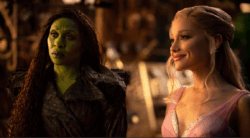It’s rarely fair to directly compare one musician to another, but Jamie Woon will likely find himself pinned next to James Blake on the reg with the release of Mirrorwriting. Which is a bit ironic—Woon’s first single was released more than two years before the hot-shot London producer appeared on the scene. But the pair’s combination of blue-eyed soul and dubstep—two of Britain’s biggest contemporary musical currents—landed them both in the BBC “Sound of 2011” poll, just months before each would release his full-length debut.
It’s important, then, to draw the distinction between how each approaches this stylistic commingling. Where Blake came from a purely electronic background—his debut single was straight Croydon bass—Woon comes from the other side. He broke out with a soulful a cappella rendition of the folk standard “Wayfaring Stranger.” When that track was remixed by dubstep kingpin Burial—moving it from mediocre Jamie Lidell mimicry to dark, urban alienation—it opened up a whole new aesthetic for Woon.
The singer fully embraces that aesthetic on Mirrorwriting, as hinted at by the fantastic singles he put out over the past year. Two of those—the Burial-produced “Night Air” and “Lady Luck”—are highlights here, carried by stuttering two-step beats and Woon’s strong ear for melody. With “Night Air,” the only track not produced by Woon, most of the album lands closer to the latter single—heavier on tunefulness but less texturally daring.
And when Woon is on his game, this is hugely successful. The dainty “Shoulda” sounds like Justin Timberlake reimagined for 2011 Britain, “Middle” is a delightfully funky Michael Jackson-esque affair, while “Street” has a grime-indebted, very London sampling. While the tracks assume a different baseline for pop music (few pop artists draw from the UK’s underground bass music scene), they’re never demanding or confrontational.
When the melodies aren’t there, however, Mirrorwriting can get a little tepid. The album’s back half drags under the weight of two lengthy, new age-y affairs (“Spiral” and “Gravity”) that eschew strong hooks in favor of failed experimentation. However, sandwiched in between the two is the bouncy “TMRW,” which features Woon’s strongest ability—his talent for effortlessly weaving smart electronics into a delightful R&B tune. This is entirely different from Blake, whose electronic noodling far outranks his attempts at pop music. I guess they’re not so similar after all.
Voice’s Choices: “Night Air,” “Street,” “Lady Luck”




